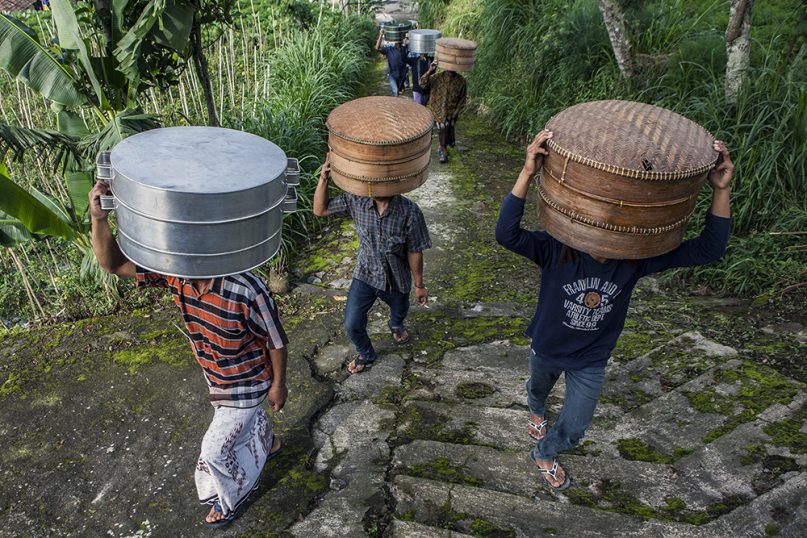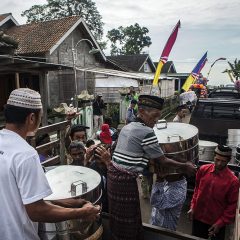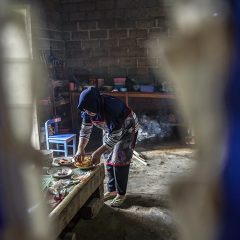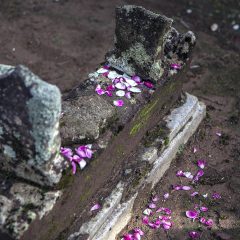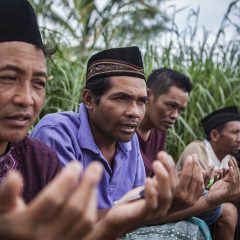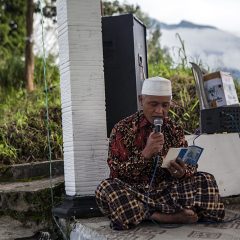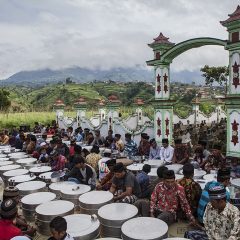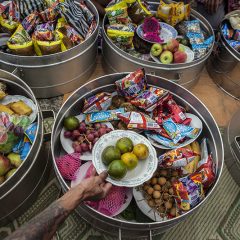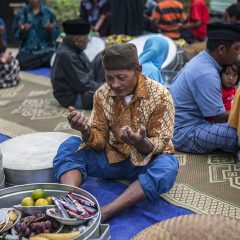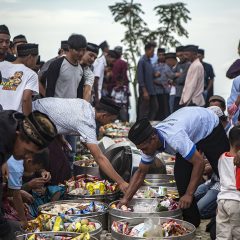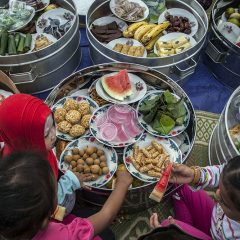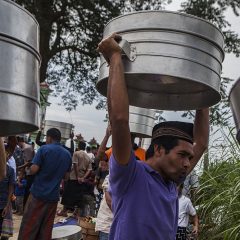CENTRAL JAVA, Indonesia (RNS) — Every year as Ramadan approaches, those who live on the slopes of Mount Merapi and Mount Merbabu honor the dead in a deeply rooted Javanese tradition called Nyadran, bringing food offerings to their families’ burial sites and visiting relatives and friends, Christian or Muslim.
- Sidorejo villagers load tenongs onto a truck to transport them to a cemetery. RNS photo by Agoes Rudianto
- A Muslim woman prepares food for Nyadran in Sidorejo village in Central Java. RNS photo by Agoes Rudianto
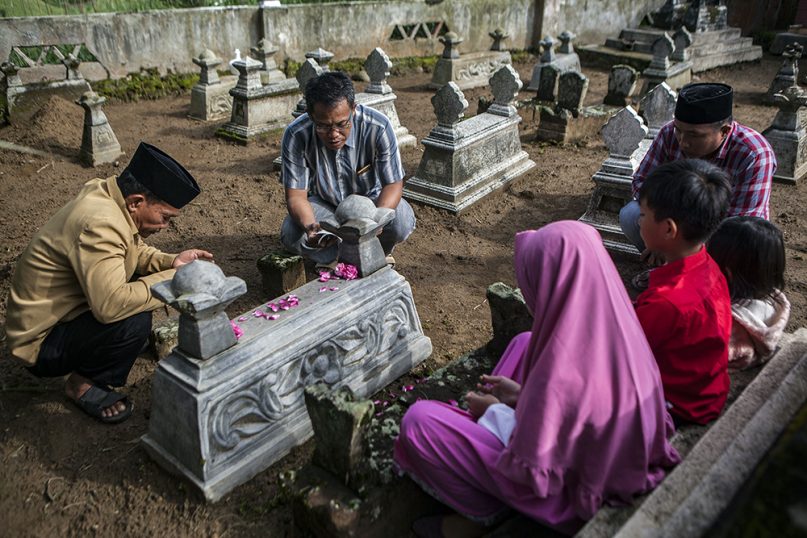
A Muslim family visits a grave as part of the annual Javanese Nyadran tradition prior to Ramadan. RNS photo by Agoes Rudianto
- Visiting family members leave flower petals on the grave of a loved one during the annual Nyadran tradition before Ramadan. RNS photo by Agoes Rudianto
- A Javanese man carries a tenong, laden with food, past a Christian church during Nyadran commemorations before Ramadan. RNS photo by Agoes Rudianto
Javanese Muslims visit public cemeteries where deceased relatives are buried. The Nyadran tradition begins with cleaning the graves and scattering flowers on the site. Prayers and a communal meal follow the gravesite ritual.
Nyadran takes place in the week before the start of Ramadan, with each Javanese community celebrating it slightly differently.
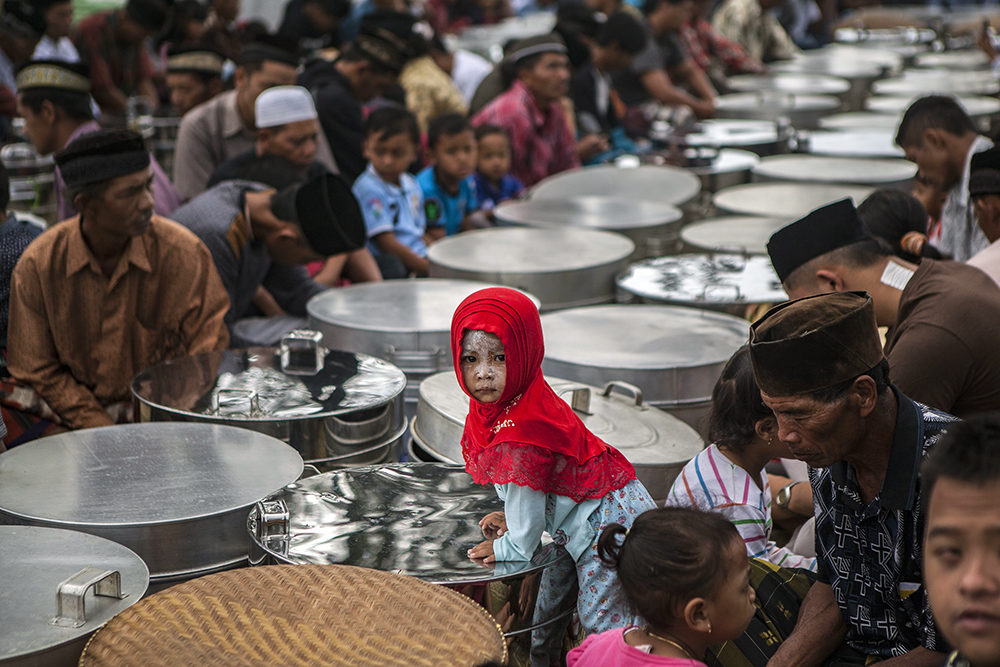
A young girl looks up while Sidorejo villagers pray prior to a meal as part of annual Nyadran commemorations in Central Java. RNS photo by Agoes Rudianto
- Javanese men pray at a traditional Nyadran communal meal at a cemetery in Central Java. RNS photo by Agoes Rudianto
- A Muslim cleric leads prayers prior to a meal as part of Nyadran traditions in Central Java. RNS photo by Agoes Rudianto
- Sidorejo villagers pray prior to a communal meal as part of Nyadran traditions leading up to Ramadan in Central Java. RNS photo by Agoes Rudianto
In Sidorejo village, Cepogo District, Boyolali, Central Java, residents head to a local cemetery to start performing the Nyadran rituals at the start of the day. They bring traditional food containers called tenongs, made from woven bamboo sheets or aluminum, filled with various traditional cakes, snacks and fruits.
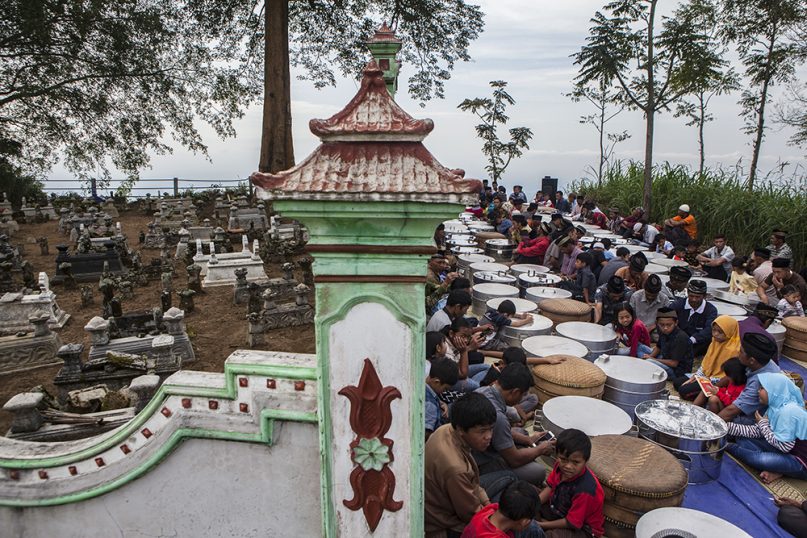
Sidorejo villagers line up for a meal outside of a cemetery as part of annual Nyadran rituals in Central Java. RNS photo by Agoes Rudianto
- A villager reaches for food during a Nyadran communal meal prior to Ramadan in Central Java. RNS photo by Agoes Rudianto
- A Sidorejo villager prays over food before a communal meal in Central Java. RNS photo by Agoes Rudianto
After attending to the graves, visitors face each other in front of the cemetery gate. One of the village elders leads a series of prayers for about 15 minutes. After the prayers, participants open the tenongs and start to eat. The contents of the tenongs are consumed by everyone. Residents believe that they will attain wealth and prosperity in the coming years if they bring home an empty tenong.
After completing a number of rituals at the tomb, the villagers return to their homes. Relatives and friends from other villages visit during the annual event prior to Ramadan.

As part of Nyadran traditions leading up to Ramadan, Sidorejo villagers pray before a communal meal in Central Java. RNS photo by Agoes Rudianto
- Siderejo villagers take part in a Nyadran communal meal at a cemetery in Central Java. RNS photo by Agoes Rudianto
- Javanese children sort through food options during a Nyadran communal meal in Central Java. RNS photo by Agoes Rudianto
- Villagers carry away tenongs after a Nyadran communal meal in Central Java. RNS photo by Agoes Rudianto
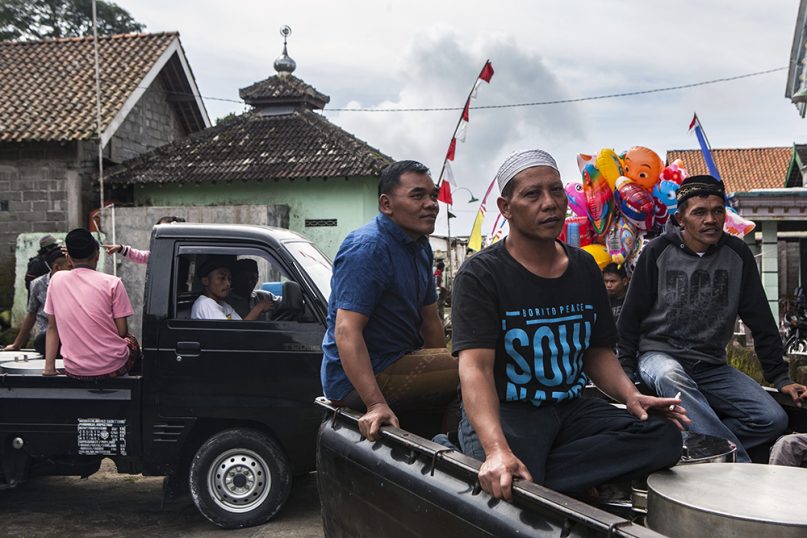
Villagers ride trucks back to town after a communal meal at a cemetery near Sidorejo in Central Java. RNS photo by Agoes Rudianto
